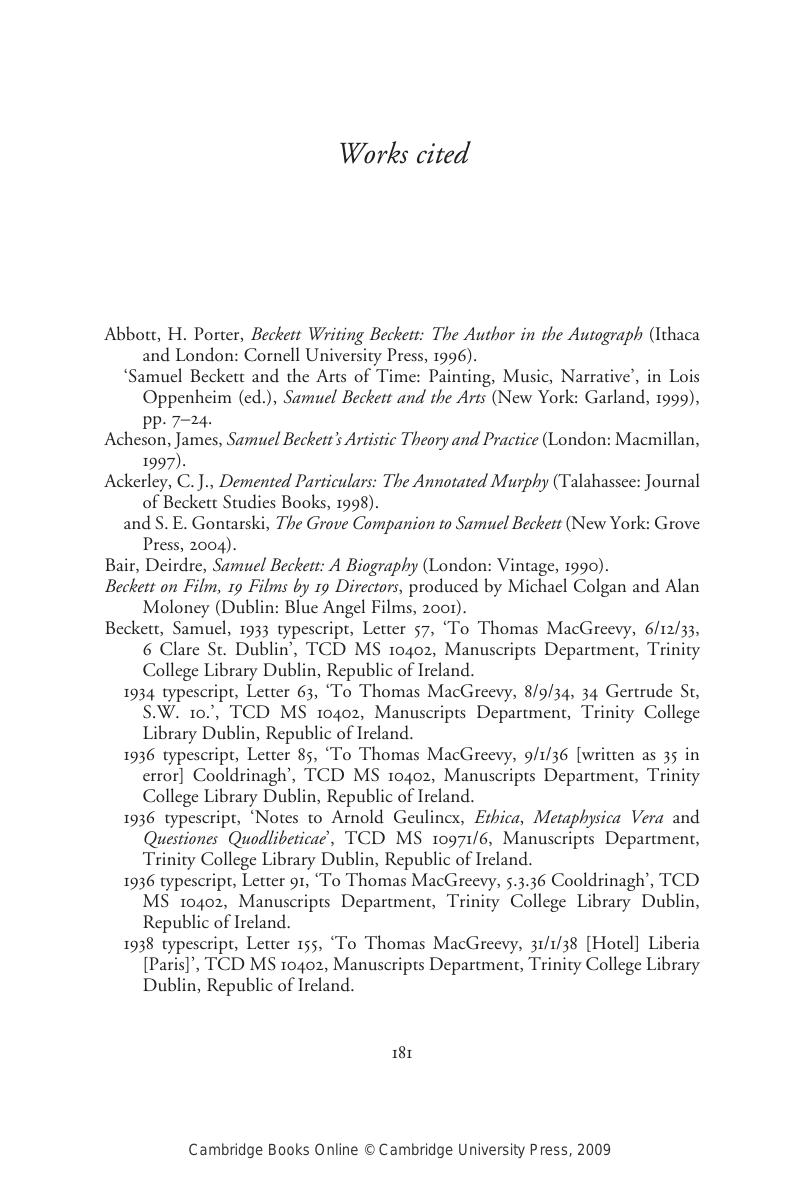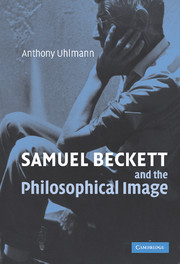Book contents
- Frontmatter
- Contents
- Acknowledgements
- Introduction
- 1 Representation and presentation: Deleuze, Bergson, Peirce and ‘the image’
- 2 Beckett's aesthetic writings and ‘the image’
- 3 Relation and nonrelation
- 4 The philosophical imaginary
- 5 Cogito nescio
- 6 Beckett, Berkeley, Bergson, Film: the intuition image
- 7 The Ancient Stoics and the ontological image
- Conclusion
- Notes
- Works cited
- Index
- References
Works cited
Published online by Cambridge University Press: 22 September 2009
- Frontmatter
- Contents
- Acknowledgements
- Introduction
- 1 Representation and presentation: Deleuze, Bergson, Peirce and ‘the image’
- 2 Beckett's aesthetic writings and ‘the image’
- 3 Relation and nonrelation
- 4 The philosophical imaginary
- 5 Cogito nescio
- 6 Beckett, Berkeley, Bergson, Film: the intuition image
- 7 The Ancient Stoics and the ontological image
- Conclusion
- Notes
- Works cited
- Index
- References
Summary

- Type
- Chapter
- Information
- Samuel Beckett and the Philosophical Image , pp. 181 - 188Publisher: Cambridge University PressPrint publication year: 2006

